Ensuring Responsible Power Generation and Water Security in Saudi Arabia
Paddy Padmanathan, President and CEO of ACWA Power
The tariff difference between our tender and the next bidder across the board seems to be in the order of about an average of 20%. In practice it means: on one transaction buying 4,000 megawatts for 20 years on a 20-year fixed-price contract in this instance at 24% tariff difference between our tender and the next bidder. That is about $1.2 billion. In effect, that is $1.2 billion of saving to the national economy of Saudi Arabia.
Interview with Paddy Padmanathan, President and CEO of ACWA Power
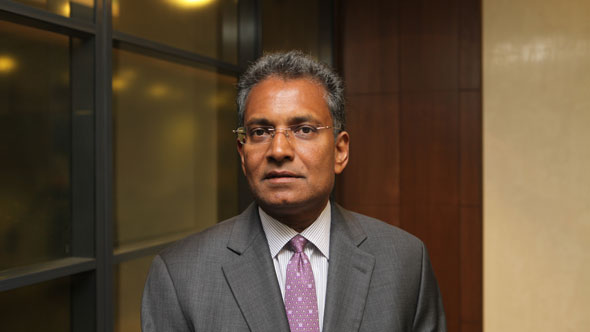
This particular sector has traditionally been the domain of governments. What is the responsibility attached to being a private/independent product of electricity and water, which are basic human needs?
Providing electricity and water while most importantly being a lifeline service, is also the founding ingredient of socioeconomic development. It is our first responsibility to reliably deliver electricity and water – at least the amounts that we contract to deliver – at the lowest possible price because that cost will have such a multiplier effect in every segment of human endeavor. It’s extremely important that the primary cost is kept as low as possible.
Thus, the mission of ACWA Power is to deliver electricity and water reliably at the lowest possible cost. We have then gone on to live that mission consistently, tender after tender. The bulk of our contracts have been secured by us via competitive tenders for bulk volumes from large off-takers. In transaction after transaction ACWA power has delivered on this promise.
The tariff difference between our tender and the next bidder across the board seems to be in the order of about an average of 20%. In practice it means: on one transaction buying 4,000 megawatts for 20 years on a 20-year fixed-price contract in this instance at 24% tariff difference between our tender and the next bidder. That is about $1.2 billion. In effect, that is $1.2 billion of saving to the national economy of Saudi Arabia.
The tariff difference between our tender and the next bidder across the board seems to be in the order of about an average of 20%. In practice it means: on one transaction buying 4,000 megawatts for 20 years on a 20-year fixed-price contract in this instance at 24% tariff difference between our tender and the next bidder. That is about $1.2 billion. In effect, that is $1.2 billion of saving to the national economy of Saudi Arabia.
The secondary responsibility of ACWA Power is towards our shareholders. The nature of this business is very capital-intensive, investing billions of dollars. This is the money of our shareholders and money we borrow from lending agencies. The primary responsibility is to wisely invest these billions of dollars. We get a plant built over a three to four year period, and then we supply the service selling the megawatts at a few cents per kilo watt hour over 20 or 25 years and collect revenue which we then use to fund the costs to operate and maintain the plants, pay back the loans and repay ourselves. Bulk of the funds we generate in the early years (typically the first 15 odd years) go towards paying back the loans. Our investment, our money gets returned very much at the back end. In fact bulk of it starts coming back only around year 15 onwards. So this is a very long-term business and the tariff we contract upfront needs to remain relevant (and yes while we have a robust contract that secures this the tariff, the tariff still needs to remain relatively competitive to alternatives) throughout this very long period.
In addition of course we have to keep delivering the power. If we do’, understood, our fault and we deserve to be punished. Second, my counterparty must still have money to continue to pay ACWA Power for the electricity (or desalinated water) delivered. You might say that the counterparty in this case in the Kingdom of Saudi Arabia is companies like Saudi Electric Company, Aramco and Marafiq. These are huge utilities and Saudi Arabia is an extremely wealthy safe bet.
But 20 or 25 years is a very long time. What is Saudi Electricity Company doing with my electricity? It is distributing it to the people, to the consumers, to the industries and so on. The industries and the people need to be there paying, even if it is subsidized price but paying, to Saudi Electricity Company to then enable Saudi Electricity Company to pay ACWA Power. We need to be very conscious of the real end-user, these are the people and the industries; it all comes down to the people of the country.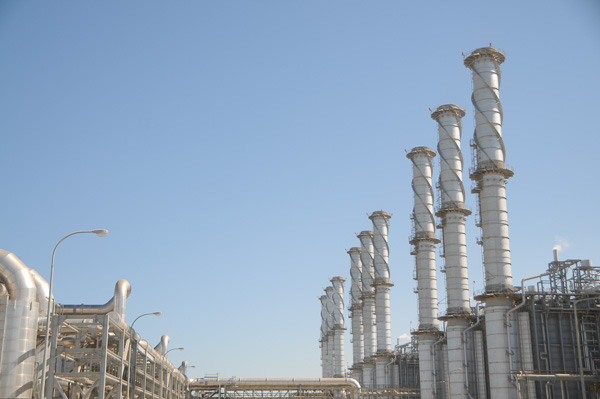
Recognizing that our security of payment or getting our money back is directly linked with the health, wealth and happiness of the people of the countries we serve we have understood the imperative to embrace social responsibility by doing what we can by our own actions to sustain the growth and prosperity of this country? So, recognizing we are spending billions in getting the plant built in the first place, we focus on maximizing the retention of that investment value in the country. That involves local procurement, to the extent that products are available. By focusing on this we can already do much local procurement, utopia is to get the big ticket items like gas turbines which I ca’ buy today in Saudi Arabia. One of the priorities for the leadership should be to manufacture the turbines locally as there is already 55,000 megawatt installed capacity and this is due to grow to 120, 000 Megawatts over the next 20 years.
ACWA Power strategy is to persuade the large industrial conglomerates such as Siemens, GE, and MHI to invest in the Kingdom. The priority is to make them to come and start manufacturing the big items like the gas turbines so the economy can grow and continue to generate the wealth which in turn offers security to my investments. We embrace Industrialization, maximizing value retention and increasing domestic content as our key responsibilities.
The other major responsibility is localizing employment. In construction, typically these kinds of projects employ 10,000 to 15,000 people; they are large. Operation is much smaller, with only 200 to 250 people at every plant. ACWA power tries to nurture and develop skills internally. That is another area of responsibility that we embrace. Again, very simple. If the country grows and prospers, ACWA Power prospers.
This is our 10th anniversary year. About 5 years after the inception, as the first set of plants started to come online, we realized that there is a significant skill shortage in power generation in the Kingdom. The planned growth of ACWA Power requires thousands of skilled technicians who for sustainability of the company over the long term needs to be citizens of the country. To resolve this challenge, the company decided to establish a training facility – a higher institute of training for water and electricity technicians –near Rabigh. The ambition was to train 200 youngsters just out of school, 18 to 20 year olds, specifically recruited from the very rural areas of Saudi Arabia.
The program is a great success. Today, the institute’s enrollment is 600 students with the plan to expand the enrollment into thousands over the next five years as the physical infrastructure of the institute is expanded. The first batch of 200 students graduated just last year.
The sustainability of subsidies is debatable. Are subsidies a cause of concern to you?
80% of solving a problem is recognizing the problem. The Kingdom of Saudi Arabia has recognized the problem. ACWA Power works extensively with government and counterparties. Subsidies are not sustainable and second, it is subsidies that lead to wastage of resources and this is well understood. The levels of energy consumption and water consumption in the Kingdom are elevated because of subsidies. Profligate use of these resources is widespread. At the same in order not to hamper socioeconomic development, you do’ want overnight to constrain or remove the subsidy and start charging real prices without preparing the society and the environment for it.
But there is a lot that could be achieved in the medium term to make meaningful impact ion this problem. For example, start to generate the electricity efficiently. The worst we can do is to supply cheap fuel to the generating companies and allow them to waste it by using that fuel inefficiently. 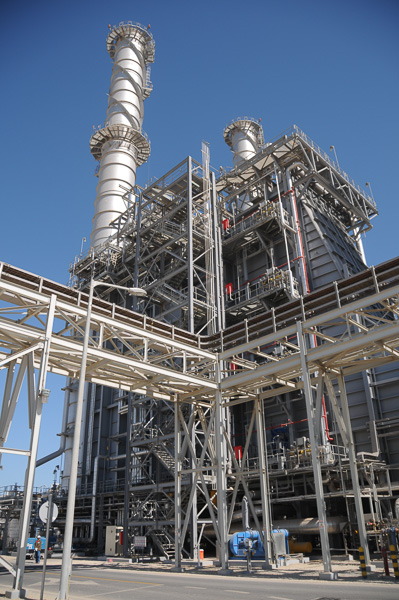
Saudi Arabia is therefore now focusing on the supply side, looking to increase the efficiency of fuel utilization in power generation, and water production. Then the Kingdom is also now starting to work on the demand side, looking at how to increase utilization efficiencies of the electricity and desalinated water that is being supplied into the system. 60% of the electricity is consumed by houses, for domestic purposes, and about 60% of that is just for air conditioning. It’s understandable; so, 36% of all the electricity that is produced in the country goes towards air conditioning.
Because electricity is cheap, the consumer, installs the cheapest air conditioner. The cheapest air conditioner is the most profligate. To tackle this issue the policymakers banned air conditioners below certain consumption threshold effective on January 1st 2014. Unfortunately, there was a massive sale in the last 3 months of last year in which they unloaded all the nasty air conditioners.
The government recognizes the problem. There is a long way to go to effect demand-side management and supply-side efficiency improvement to seriously reduce the total subsidy bill; but work is underway in earnest. His Excellency the Minister of Electricity and Water has made it public that Saudi Arabia must and will move towards a cost-reflective tariff. Electricity tariffs have now been increased. Bands have been introduced so the higher-volume users now need to pay more. There is a price differential between day and night, peak time and off-peak, and so on. All the mechanisms are starting to be put in place.
In the case of water, there is an enormous program in the Kingdom of Saudi Arabia to reduce network losses. About half of desalinated water is lost in the network. That problem is being fixed. Also, attitudes are changing towards wastewater. There’s no phobia anymore about treating wastewater to a tertiary level and recycling and reusing it. We can recycle this water and this is much more cost-competitive and energy-efficient than desalinating water which is our primary resource.
There’s a lot of activity and action. It’s a sector that is full of opportunity and an enormous amount of activity, not just to serve demand, which is growing very fast, but also to change the nature of the sector and to make it much more efficient. In the case of electricity, for example, the significant focus is very much on increasing efficiency, reducing fuel consumption and diversifying the fuel mix. There’s also a lot of effort on the transmission side, in improving the quality of transmission lines, strengthening them and modernizing them, as well as using smart grids
The Kingdom has embarked on the industrialization strategy that is consuming more and more energy. What do you see as the way forward with all the industries growing so quickly?
Saudi Arabia has a lot of gas. The issue is the cost of extracting that gas. The constraint in the kingdom has been that there is a regulated price in the Kingdom of Saudi Arabia that has existed for decades. When gas is used inside the country… First of all, the responsibility for extraction, processing and delivery of oil and gas is centralized in the hands of Aramco. But there’s also the regulation that says when gas is supplied by Aramco into the kingdom for domestic use, it shall be sold at 75 US Cents per million BTU.
The US shale gas revolution has confused the gas pricing structure. Forget about the mythical $2 per million BTU gas price which is also not true in the United States. The gas price in the US today is around $5 per million BTU. But globally, the average gas price is in the range of $9 or $10. With $9 or $10 numbers on a global basis while Saudi Aramco is required to supply gas inside the Kingdom of Saudi Arabia at 75 cents per billion BTU, it is no surprise that Aramco is not exactly enthusiastic about pulling out gas which is actually going to cost even more than 75 cents to extract.
The second point is that oil was the easiest to take out. We have a quota within the OPEC framework of lifting, I’m not sure what it is today, maybe 9.5 million barrels a day. We were happy lifting it. By selling 7.5 to 8 million barrels we were making enough money anyway, so if we use 1.5 to 2 million barrels domestically at $4.40, which is again a regulated price for consumption inside the country, it is more manageable than lifting gas and selling it at 75 cents per million BTU. That’s basically what was happening. It is well-recognized that every barrel of oil that we save in usage in this country, given that it’s within our share of the OPIC quota, we can ship it and get $100. Don the immediate priority now is to focus on reducing domestic oil consumption.
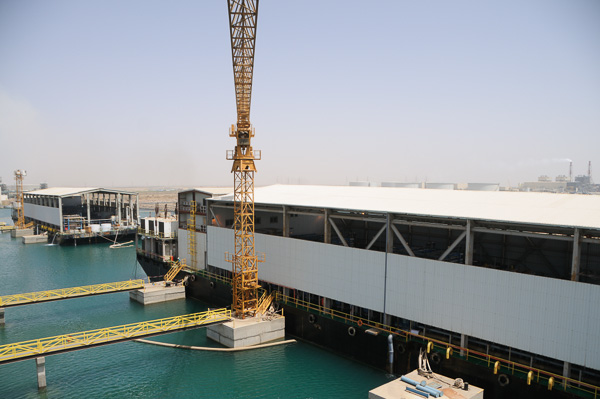
A decision was already made on this in the middle of last year. One of our projects, just as it was about to achieve financial close, was cancelled because it was going to be the next oil-fired IPP (Independent Power Project) by the name of Rabigh 2. In April, just the day before the signing ceremony, the project was cancelled because it was decided there would be no more oil for power generation. Subsequently we worked with Saudi Electricity Company, our partner, and converted the project into a gas-fired power plant project and it achieved financial close in December and is under construction. Gas is now going to be utilized for power generation and water production going forward.
There will be accommodation between Aramco and the Ministry of Finance and the Ministry of Petroleum and the government of Saudi Arabia as to how to resolve the pricing issue to ensure that Aramco can afford to lift the gas and supply it and make a profit on it without stifling the socioeconomic development of the Kingdom of Saudi Arabia
In Saudi Arabia, sun at one level has been a curse for us to the extent that we have to cool, but sun is a resource as well. It is generating heat and giving us photons. Saudi Arabia has also embraced the idea of solar and other forms of renewable energy, particularly given that renewable energy technology has innovated and production techniques have gone forward to such a point that renewable energy has become very cost-competitive, comparatively. Saudi Arabia has now recognized the value certainly of fulfilling a segment of the daily load curve, particularly the upper parts of it which is directly driven by the sun beating on our houses and offices and requiring us to cool, by renewable energy. Therefore Saudi Arabia is also embarking on a diversification program of its fuel mix in power.
And why should’ the gas price be $7 or 8 per MMBTU anyway? That’s the market price. That’s the real value of gas. At even $7 or 8 it is still cheaper for us to put it into a combined cycle power plant and generate electricity than to take oil and burn it. If I quickly do some mental arithmetic, if I receive gas at $8 and I produce electricity, what is the equivalent oil price at which I then can compete in terms of production cost? The oil needs to be given to me at $30 per barrel. 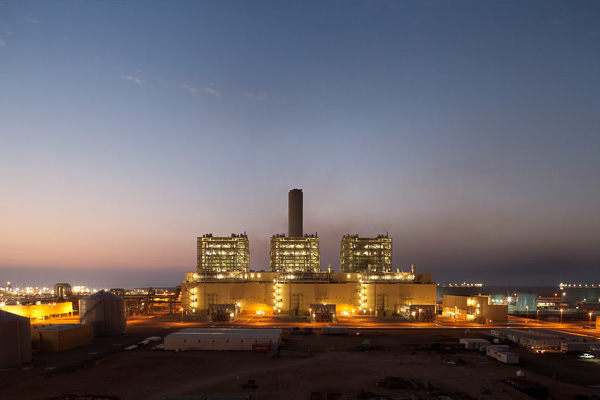
One important topic to discuss is water and energy security, not only in Saudi Arabia—you are present in Jordan, Mozambique and South Africa. How do you manage the electricity and water security in your projects?
Wherever we go, we relentlessly focus on building a multi-fuel portfolio with the aim of establishing a significant capacity as quickly as possible. For example ACWA Power generates, 55% of the electricity consumed by Jordan. Given that we are providing such essential services; in effect lifeline supplies for the countries and comminutes we operate in, our priority is ensuring the reliability, operability and availability of our power plants and desalinated water plants.
Our investment strategy relies on extensive due diligence. Investments are made in countries with a long-term track record of political stability, respecting contracts and respecting the law, and those who welcome the private sector to own and operate power generation and desalinated water production facilities. ACWA power is looking for countries which are geographically close to our home to start with. Number one, these countries need to pass all the prerequisites about security, stability, respect for law, etc. and then number two, we need to be able to add value in that country.
The demand for water and electricity is growing. Across the MENA region, electricity demand is growing at an average of about 7%. Whether it’s Yemen, Iraq, Lebanon, Morocco, Egypt, or anywhere, the average, and some of them are slightly lower or higher, is about 7%. Water demand is growing at about 5 to 7%. Clearly we can therefore make meaningful contribution to these counties by serving this rapidly growing demand for capacity. I can say that we are very happy in each and every one of the country’s ACWA Power is today present.
One of the biggest challenge for us is to manage our own growth. At this stage, our limit is to spread into nine or ten countries and progressively we will grow a little bit beyond that. For example, in the southern part of Africa I can imagine that although we are currently focusing on four countries, over time we could stretch to another two, three or four countries once we have consolidated our position in the first four countries we have entered.
We are in Morocco today but over time, we could contemplate investing in say Tunisia. In the North Africa region, Egypt is our next priority where currently institutional capacity is weak but demand for additional electricity generation capacity is massive. We are already in Turkey and we are very comfortable there. ACWA Power’s expansion strategy includes investing into other countries of the GCC where we are not yet involved and progressively stepping into Southeast Asia.
Would you be looking into Libya as well?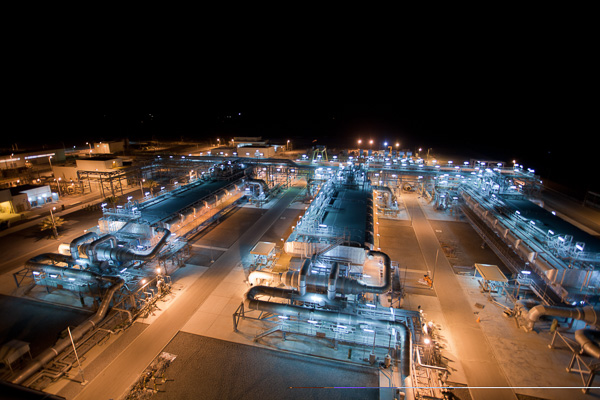
Countries like Libya, Iraq and Lebanon—I think the fundamentals are there but unfortunately they have’ established the necessary level of stability for us to secure long-term financing. There are two issues for us. Firstly we are investing our own money as equity and we need to confident of getting it back over 20 year time frame, and given that these are enormously capital-intensive projects typically we then borrow 70 to 80% from the debt capital markets.
When you borrow from the market, we need to make sure that we are able to borrow for a 15 to 20 year period. If we are only able to borrow for only 2 or 3 years, which is where the debt market is today for these countries, the cost at which we need to sell the electricity will be so phenomenal that it will be unsustainable. Even if someone is foolish enough to sign a contract tomorrow, by the time we build the plant they will wake up and when the first bill comes, they will realize they ca’ afford it. So we need long-dated debt and these countries are not yet stable enough for lenders to put money there for 20 or 25 years.
What are some of your strategic goals for 2014/15? What would you like to achieve and focus on?
To continue to manage growth and in parallel, continuing to grow the institutional culture, and embed processes and procedures at ACWA Power. In the first ten years of our business, we’ve built up a portfolio of about $24 billion in assets. Today ACWA Power is working on new projects worth about $15 billion. The growth of the company is phenomenal.
First, immediate priorities for 2014 and 2015 are to financial close as many projects as possible and start construction. Second, we have got a few assets in construction that we need to bring online now. Third, we want to continue to efficiently operate the portfolio that we already have and start preparing for our first entries into Southeast Asia.
On the shareholder growth and development side, we were founded by three shareholders. In 2008, five other large Saudi industrial conglomerates joined us as shareholders. These are all capital increases; nobody has sold. At the end of 2012 and early 2013, two institutional shareholders joined us from the Kingdom of Saudi Arabia: Sanabil and PPA (Public Pensions Agency). At the end of 2013 we finalized a private placement with International Finance Corporation (IFC), an affiliate of the World Bank for them to take up 5% of our shares.
In 2014, we have embarked on preparing ourselves for a public offering in the Kingdom of Saudi Arabia. It’s a primary offering. We will keep a space for a secondary offering and do a listing somewhere else at some future time.
Are you positive about the future of Saudi Arabia?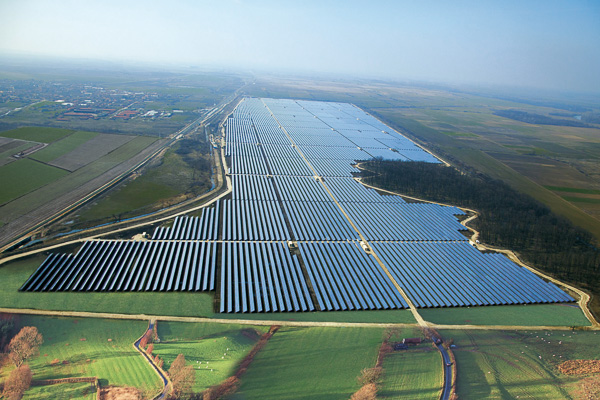
Saudi Arabia in my view has started to be well-recognized for the role that it has played and it should play on the world stage as it goes forward. The country is much more institutional than people think it is. It’s a very institutionalized structure. There are rules, processes and procedures; planning is very organized. The country prepares for itself. The quality of leadership is improving all the time in corporations and government. While it recognizes the huge challenges it has internally, with the young population that needs to be gainfully employed and embraced and brought into the economy as active participants, which is a very big challenge, it also recognizes the enormous opportunity that this pool of young people provide.
For me, the population base and the fact that it is a younger population base is actually an enormous blessing because that is a significant resource. Without that, what are you going to do? The kingdom recognizes that. We have the money, we have the people, and we have the ability to put that all together and get it into a working engine that can then remain a solid anchor for the region. A solid, stable Saudi Arabia is extremely vital because it can provide the platform of stability for the region and show the required leadership to enable the community of nations to coexist and add value to each other.
Saudi Arabia is starting to visibly be a part of the community of nations in this part of the world. It was always part of it but it’s starting to recognize that it needs to be visibly part of it and it is doing this very well. So I am very positive and I think there is an exciting future. I say to my colleagues quite frequently that I’m 56 years old and I wish I was 20 years younger; I really do.